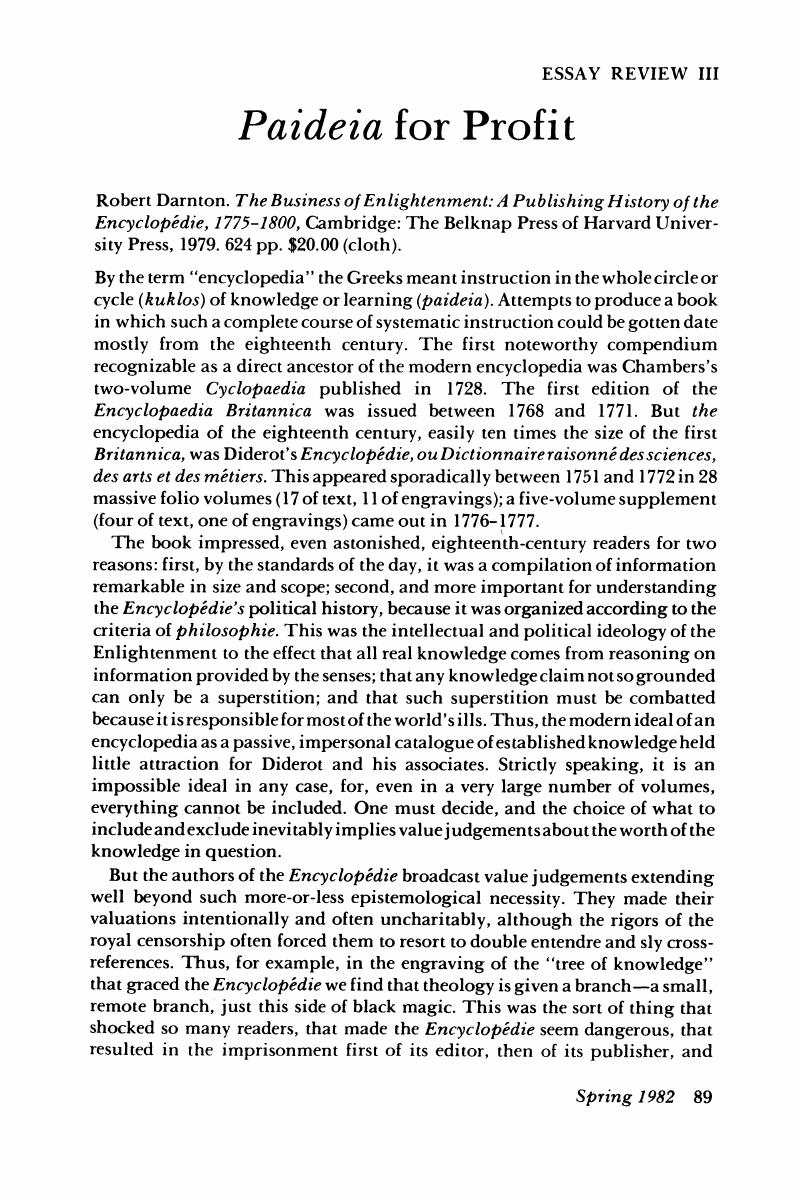Article contents
Paideia for Profit
Published online by Cambridge University Press: 24 February 2017
Abstract

- Type
- Essay Reviews
- Information
- Copyright
- Copyright © 1982 by History of Education Society
References
Notes
1. Quoted in Wilson, Arthur M. Diderot (New York, 1972), pp. 335–336. Wilson's work and that of Proust, Jacques Diderot et l'Encyclopédie (Paris, 1967) are two of the best accounts of the first edition and its content.Google Scholar
2. Diderot had earlier in his article “Encyclopédie” in vol. V of the Encyclopédie stressed the need for revision. Another famous contributor, Voltaire, did likewise in his Questions sur l'Encyclopédie. Google Scholar
3. See Ploman, Edward and Clark Hamilton, L., Copyright: Intellectual Property in the Information Age (London, 1980) for a brief history of copyright legislation.Google Scholar
4. See Balzac's Lost Illusions for a vivid fictional account of the importance of paper, the problems of printers, and the generally dishonest character of the literary world in a slightly later period.Google Scholar
5. Article “Encyclopaedia” in the Encyclopaedia Britannica, 11th edition (1910–11), vol. 9, p. 380. Italics added.Google Scholar
6. The way the list comes down to us nicely illustrates the improbity of the book business. The heads of the Neuchâtel group, rightly suspecting that their partner Duplain would try to swindle them, obtained by stealth and copied his list of subscribers. It is this copy that survives.Google Scholar
7. See for example Furet, Francois Livre et société dans la France du XVIIIe siècle, 2 vols. (1965, 1970) and Altick, Richard D. The English Common Reader: A Social History of the Mass Reading Public, 1800–1900 (Chicago, 1957).Google Scholar
- 1
- Cited by


